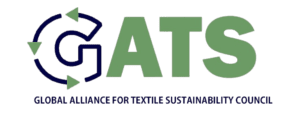Why We Do
The current trajectory of the textile and fashion industry is unsustainable. We are rapidly depleting natural resources, and the waste produced is wreaking havoc on the environment.
Here’s why action is critical:
- Environmental Impact:
The textile industry accounts for 10% of global carbon emissions and is the second-largest consumer of water globally. Its waste contributes to overflowing landfills, and toxic chemicals pollute water bodies.
- Resource Depletion:
Virgin cotton farming consumes vast amounts of water, pesticides, and land, while synthetic fibers are made from fossil fuels, adding to environmental degradation.
- Need for Circularity:
Over 100 million tons of textiles are thrown away annually. Recycling and reusing textiles are essential to closing the loop and ensuring that waste is minimized while resources are kept in circulation.

Recycled Cotton is the Future
Environmental Impact
Recycled cotton uses 99% less water and significantly reduces energy consumption compared to virgin cotton.
Cost Neutrality
Contrary to myths, incorporating recycled fibers is cost-neutral, offering brands a sustainable and affordable alternative to virgin materials.
Sustainability
Recycled cotton is the most environmentally friendly fiber, and Textiles Exchange ranks it as the top Preferred Fiber due to its ability to be recycled without harming the environment.
Infinite Recycling Potential
When sourced and sorted correctly, recycled cotton can be recycled again, creating a circular loop that minimizes waste.

The Problem with the Textiles and Fashion Industry
The industry faces significant challenges:
- Waste Generation: Millions of tons of textile waste end up in landfills every year.
- Resource Depletion: Unsustainable use of water, energy, and virgin materials threatens long-term viability.
- Low Recycling Rates: Less than 1% of clothing is recycled into new garments, with most textile waste either incinerated or sent to landfills.
- Fragmented Supply Chains: MSMEs struggle to integrate circular practices due to lack of access to technology, capital, and traceability tools.
